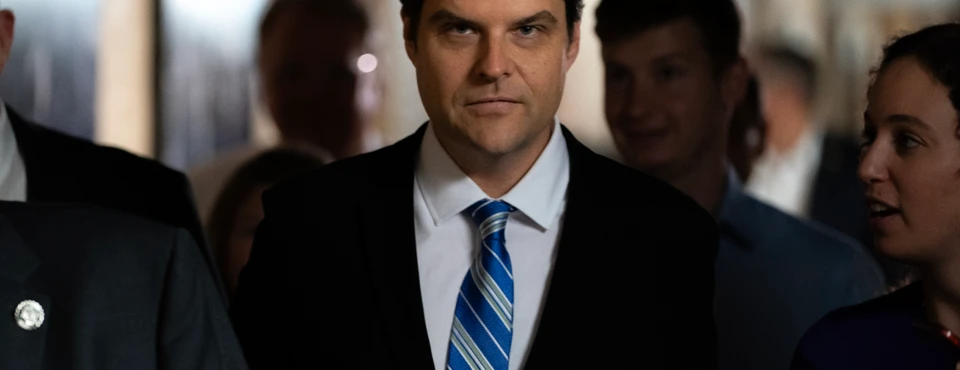
Senate Democrats use dwindling floor time to confirm a new head for the government’s ethics office, with whom Trump administration often butted heads in his first term.
The Senate on Thursday confirmed President Biden’s nominee to serve as head of the Office of Government Ethics in a 50-46 vote, giving him a term that will last through President-elect Trump’s tenure.
David Huitema, currently a State Department ethics official, will now serve in the governmentwide ethics czar role in a five-year term. Senate Democrats sought to prioritize his confirmation in the waning days of the Biden administration and their control of the chamber before Trump’s inauguration, as the former and future president once again brings with him to the Oval Office a bevy of potential conflicts of interest.
Bringing Huitema’s role more into the foreground is Trump’s decision to so far refuse to sign agreements with the Biden administration, and the ethics agreements that go with them, that enable a formal presidential transition to take place. Absent those agreements, Trump’s teams have been unable to deploy into agencies and receive briefings from career staff.

OGE has been without a confirmed director for more than a year, when Trump-appointee Emory Rounds’ term expired. Shelley Finlayson, chief of staff and program counsel at the ethics agency, has filled in on an acting basis. During his first term, Trump bypassed Finlayson in a period without a confirmed director to instead install another career official as acting director.
Rounds had some high profile engagements with Trump during his tenure. OGE is heavily involved with political appointments and is typically communicating with the White House on a daily basis to help arrange disclosures and agreements from nominees.
In 2019, Rounds issued a warning to the Trump administration that agencies could not unilaterally change their ethics rules without Office of Government Ethics approval and threatened to hold up any ethics agreement with officials who refused to comply with the office’s requests.
He was involved in an extended back-and-forth with then-Commerce Department Secretary Wilbur Ross after Rounds refused to certify Ross’ financial disclosure, stating it contained inaccuracies and failed to comply with the secretary’s agreement to avoid conflicts of interest through divestiture. Rounds’ office similarly refused to approve a disclosure from then-Environmental Protection Agency Administrator Scott Pruitt.
David Apol, who served as acting OGE director in 2017 when Trump bypassed Finlayson, responded to Health and Human Services Department Secretary Tom Price’s resignation following reports he spent hundreds of thousands of dollars on private, chartered flights, and several other Trump officials facing allegations of abusing their posts, by sending a letter telling the administration’s political appointees to act more ethically.
“I am deeply concerned that the actions of some in government leadership have harmed perceptions about the importance of ethics and what conduct is, and is not, permissible,” Apol said at the time. “I encourage you to consider taking action to re-double your commitment to ethics in government.”
Senate Democrats tried in September to move Huitema’s nomination through a unanimous consent request, though Sen. Mike Lee, R-Utah, objected. Lee said Huitema would engage in “partisan lawfare” and only the next president should make the appointment.
Walt Shaub, who served as OGE director under President Obama and briefly under Trump, praised the Senate for ensuring Huitema’s confirmation even as he suggested Biden’s nominee may not be able to see his five-year term through.
“It might be a hollow victory for government ethics if Trump fires Huitema after the inauguration,” Shaub said. “Even if Trump doesn’t fire Huitema, OGE won’t be able to prevent Trump’s top appointees from retaining conflicting financial interests if the Senate grants Trump’s request that lawmakers conspire in skirting or short-shrifting the constitutional confirmation process.”
Trump has called for the Senate to relinquish its advise and consent role to instead allow for recess appointments. Shaub suggested Huitema take care not to “become mere window dressing” for Trump’s attempts at circumventing ethics law.
During his confirmation hearing, Huitema said would be entering the role at a critical time.
“We must support each other in courageously providing sound ethics guidance, even when it is unwelcome, and in pursuing enforcement of the ethics laws where necessary,” he said.